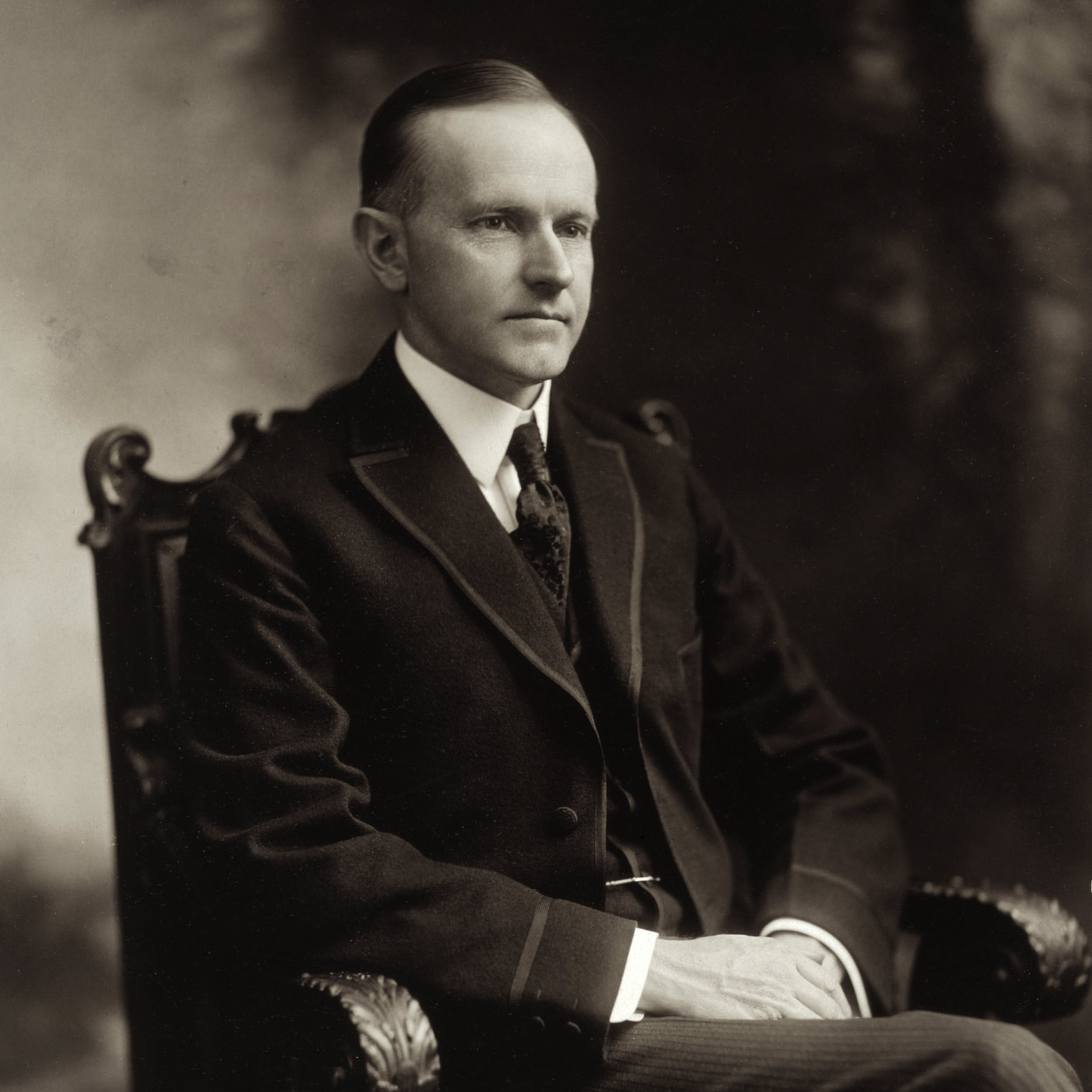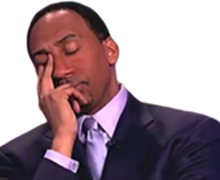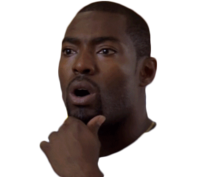OG Thread:
ktt2.com/conservative-thread-2624Deleting any troll posts from the left.







Socialism vs. Capitalism debate:

Is this more for everything economics, politics, and social?
Im down for more economics instead of Alex jones s***
 ragedsycokiller
ragedsycokillerIs this more for everything economics, politics, and social?
Im down for more economics instead of Alex jones s***
Mix of everything I guess. I want it to be a serious thread. Maybe a few jokes or back and forth humor with other people, but I don't want this sht to be some pepe/alex jones type sht. If it gets off-topic or Synopsis tier ppl on either side make things bad, I'll ask a mod to delete their post
So yeah, more economics, politics, social, cultural, etc s*** but I'm ok with some memes and fun
As a young kid I was heavily to the left, even liked communism for a decent part of my young self but the older I get the more conservative I get, I still think the establishment and big corporations are a major problem, climate change is most likely the biggest issue we have to face now and these corporations and their beneficiaries that caused the majority of it should pay for it. Other than climate change i'm fiscally and even socially turning more conservative.
 Saint Aquinas
Saint AquinasMix of everything I guess. I want it to be a serious thread. Maybe a few jokes or back and forth humor with other people, but I don't want this sht to be some pepe/alex jones type sht. If it gets off-topic or Synopsis tier ppl on either side make things bad, I'll ask a mod to delete their post
So yeah, more economics, politics, social, cultural, etc s*** but I'm ok with some memes and fun
sounds all Gucci for a good thread. The other OP invited more of crazies to derail and make some people look goofy during the 2016 era
The main issue with conservatism to me is that there doesn't seem to really be any strong belief associated with it. The idea of any form of actual conservatism - social/societal conservatism or environmental for example (environmentalism used to be a heavy conservative stance, the climate stuff being """liberal"""/left is only a recent phenomenon in the last few decades) is far removed from practical politics and implementation. Like to me you cannot really be conservative but care more about the "market" than about the values created by such. Like why even be a "conservative" of if your biggest concern is how the market is organized rather than what social values the market breeds. Similarly, "conservatives" find themselves in a heavy overton window stuck between acceptability as introduced by liberals, where their only alternatives are to be either contrarian or absolutely insane conspiracy-theorists, because they cannot engage in actual social discourse without being held to the same standards as their constituents, which is completely against the entire theoretical point of conservatism; there's nothing actually being "conserved". For conservatism to be taken seriously, it needs to move caring about liberal economics, and secondly, it needs an actual identity instead of contrarianism to liberal policy. I've said this in other threads in the past, but at the start of the 1900s, there was literal a stronger alliance between Paleoconservatives and Marxists then there was between either of those parties and other political apparatuses, ESPECIALLY in non-white communities. Everything fell apart when conservatives swapped to basically became monocultural in politics with their liberal "opposition", and even today the vast majority of people really have no actual conservative representation. Also if you want to be taken seriously in your ideology as a conservative, I really think conservatives need to read more - I say this in a complimentary way, not in a condescending or demeaning one. Authors like Rothbard, Hayek, Mises, etc are fine if thats what youre interested in yourself, but people really should read stuff originating in what conservatives consider """other""" ideologies, whether it's marxist, post-modern, etc. - I think ignorance of fields of writing traditionally categorized as "against" conservatism has resulted in a further narrowing of what conservatism actually is.
 krishna bound
krishna boundThe main issue with conservatism to me is that there doesn't seem to really be any strong belief associated with it. The idea of any form of actual conservatism - social/societal conservatism or environmental for example (environmentalism used to be a heavy conservative stance, the climate stuff being """liberal"""/left is only a recent phenomenon in the last few decades) is far removed from practical politics and implementation. Like to me you cannot really be conservative but care more about the "market" than about the values created by such. Like why even be a "conservative" of if your biggest concern is how the market is organized rather than what social values the market breeds. Similarly, "conservatives" find themselves in a heavy overton window stuck between acceptability as introduced by liberals, where their only alternatives are to be either contrarian or absolutely insane conspiracy-theorists, because they cannot engage in actual social discourse without being held to the same standards as their constituents, which is completely against the entire theoretical point of conservatism; there's nothing actually being "conserved". For conservatism to be taken seriously, it needs to move caring about liberal economics, and secondly, it needs an actual identity instead of contrarianism to liberal policy. I've said this in other threads in the past, but at the start of the 1900s, there was literal a stronger alliance between Paleoconservatives and Marxists then there was between either of those parties and other political apparatuses, ESPECIALLY in non-white communities. Everything fell apart when conservatives swapped to basically became monocultural in politics with their liberal "opposition", and even today the vast majority of people really have no actual conservative representation. Also if you want to be taken seriously in your ideology as a conservative, I really think conservatives need to read more - I say this in a complimentary way, not in a condescending or demeaning one. Authors like Rothbard, Hayek, Mises, etc are fine if thats what youre interested in yourself, but people really should read stuff originating in what conservatives consider """other""" ideologies, whether it's marxist, post-modern, etc. - I think ignorance of fields of writing traditionally categorized as "against" conservatism has resulted in a further narrowing of what conservatism actually is.
"The main issue with conservatism to me is that there doesn't seem to really be any strong belief associated with it."
This is pretty vague tbh. I hate when people try to attach definitions onto things randomly and then talk about how people don't defend the definitions they attached. I'm not trying to single you out but it kinda seems like that's what you are doing here. Conservatism, in a philosophical sense, doesn't necessarily mean to conserve in the English sense. It means a lot of different things depending on what part of the country you want. Yeah, preserving a few things has usually been a trademark of conservatism, but it isn't the only thing talked about. As for enviromentalism, I've never heard a single conservative philosopher argue why you have to be some environmentalist in order to be conservative. Additionally, not every conservative preached market dogma. Yes, people like Goldwater and Frank Meyer helped create Fusionism, which effectively combined laissez-faire economics with social issues/traditional values, but that hasn't always been the case and it certainly isn't today. A lot of conservatives are only conservative socially and traditionally. I'd argue most are this. There's also the point to be made that a lot of people on the left love calling Hitler a right-winger, yet his economics are sanders-lite if not sanders fulfilled.
 Saint Aquinas
Saint Aquinas"The main issue with conservatism to me is that there doesn't seem to really be any strong belief associated with it."
This is pretty vague tbh. I hate when people try to attach definitions onto things randomly and then talk about how people don't defend the definitions they attached. I'm not trying to single you out but it kinda seems like that's what you are doing here. Conservatism, in a philosophical sense, doesn't necessarily mean to conserve in the English sense. It means a lot of different things depending on what part of the country you want. Yeah, preserving a few things has usually been a trademark of conservatism, but it isn't the only thing talked about. As for enviromentalism, I've never heard a single conservative philosopher argue why you have to be some environmentalist in order to be conservative. Additionally, not every conservative preached market dogma. Yes, people like Goldwater and Frank Meyer helped create Fusionism, which effectively combined laissez-faire economics with social issues/traditional values, but that hasn't always been the case and it certainly isn't today. A lot of conservatives are only conservative socially and traditionally. I'd argue most are this. There's also the point to be made that a lot of people on the left love calling Hitler a right-winger, yet his economics are sanders-lite if not sanders fulfilled.
Hitler was Sanders-lite..

That was the whole point of making sure only one type of person existed

 Saint Aquinas
Saint Aquinas"The main issue with conservatism to me is that there doesn't seem to really be any strong belief associated with it."
This is pretty vague tbh. I hate when people try to attach definitions onto things randomly and then talk about how people don't defend the definitions they attached. I'm not trying to single you out but it kinda seems like that's what you are doing here. Conservatism, in a philosophical sense, doesn't necessarily mean to conserve in the English sense. It means a lot of different things depending on what part of the country you want. Yeah, preserving a few things has usually been a trademark of conservatism, but it isn't the only thing talked about. As for enviromentalism, I've never heard a single conservative philosopher argue why you have to be some environmentalist in order to be conservative. Additionally, not every conservative preached market dogma. Yes, people like Goldwater and Frank Meyer helped create Fusionism, which effectively combined laissez-faire economics with social issues/traditional values, but that hasn't always been the case and it certainly isn't today. A lot of conservatives are only conservative socially and traditionally. I'd argue most are this. There's also the point to be made that a lot of people on the left love calling Hitler a right-winger, yet his economics are sanders-lite if not sanders fulfilled.
This isn't really me attaching definitions onto things randomly, it's pointing out that modern conservatism doesn't really have any strong beliefs which sets itself apart from other contemporary ideologies.
While I know technically conservatism is an umbrella term, it really doesn't seem to mean much for modern politics. Like is Libertarianism Conservative? People say so in terms of American politics, but it's not really in ideological terms, because the core basis of Libertarianism is Individualist Liberalism. While Conservatives have adapted aspects of Libertarianism separately, i.e. small government mercantilism, there doesn't really seem to be any consistency in why having a small government matters to them - the lines drawn for why things should be structured or why certain things should be small or others not are completely arbitrary.
If modern conservatism wants to be an arm of general Liberalism, it's just going to be fighting itself as an Ouroboros where it can never figure its issues out, since it's not in any manner distinct from the actual system it claims to be fighting against. If conservatism just wants to be a branch of liberalism, it's not a real ideology which will ever gain any ground since actual liberals will always be the ones to shift the overton window of acceptability politics.
When I talk about market dogma, I say it because it's inseparable from most modern conservative rhetoric. Like if I say "corporations are causing social decay", then why is not more "conservative" (in paleoconservative definition) to want to destroy those corporations, vs letting them grow infinitely? Is the responsibility of market conservatism somehow more meaningful than social conservatism? Paleoconservatism did not have its primary concern with size of government nor in type of market; the primary concern of paleoconservatism pre-WW2 was social values and conservation of culture and national identity. Conservatism shifted following WW2, and Paleoconservatism basically dropped out of the Conservative umbrella, which basically now just includes various branches of Neoliberalism (Reaganism, Small Government Conservatism, etc) and Lite-branches of Libertarianism (Civil Libertarianism, etc) - most other forms of what would otherwise traditionally be conservatism (i.e. Paleoconservatism, Clericalism, Civic Nationalism, Integralism) basically are no longer represented under said branch anymore.
Also Environmentalism is a STRONG issue which originated in conservative rhetoric - hell, in modern economics it originated in LIBERTARIAN rhetoric. AnCaps like Rothbard & Mises wrote extensively on Environmentalism. Rothbard wrote “Law, Property Rights, and Air Pollution” in 1982 - in Mises's "Epistemological Problems of Economics" (1960), he pointed to the position of environmentalism as related to the state. Outside of Libertarian/AnCap types, "Green Conservatism" is a policy which was historically associated with what is now morphed into "right wing" philosophy. Hayek wrote "The Road to Serfdom" (1944) where he argued for environmentalism as a position of conservatism due to the obligation of authority to its citizens. In modern history, Roosevelt was one of the initial progenitors of enviromental regulations, such as natural park designations. The NEPA & NOAA were both created under Nixon. In terms of "extreme" right wing ideology, Fascism was originally known for its extreme care about the environment - Italian Fascism was at the time known as a "rural" ideology due to the emphasis placed on preservation of natural landscapes and environments, and regulation of corporations to prevent destruction of natural land (for retaining "national beauty").
If you want to learn more about historical ideology and their place in modern political debate, not even trying to be condescending, I can give you a lot of reading recs which if you lean conservative may seriously contribute to your politic interest krishna bound
krishna boundThis isn't really me attaching definitions onto things randomly, it's pointing out that modern conservatism doesn't really have any strong beliefs which sets itself apart from other contemporary ideologies.
While I know technically conservatism is an umbrella term, it really doesn't seem to mean much for modern politics. Like is Libertarianism Conservative? People say so in terms of American politics, but it's not really in ideological terms, because the core basis of Libertarianism is Individualist Liberalism. While Conservatives have adapted aspects of Libertarianism separately, i.e. small government mercantilism, there doesn't really seem to be any consistency in why having a small government matters to them - the lines drawn for why things should be structured or why certain things should be small or others not are completely arbitrary.
If modern conservatism wants to be an arm of general Liberalism, it's just going to be fighting itself as an Ouroboros where it can never figure its issues out, since it's not in any manner distinct from the actual system it claims to be fighting against. If conservatism just wants to be a branch of liberalism, it's not a real ideology which will ever gain any ground since actual liberals will always be the ones to shift the overton window of acceptability politics.
When I talk about market dogma, I say it because it's inseparable from most modern conservative rhetoric. Like if I say "corporations are causing social decay", then why is not more "conservative" (in paleoconservative definition) to want to destroy those corporations, vs letting them grow infinitely? Is the responsibility of market conservatism somehow more meaningful than social conservatism? Paleoconservatism did not have its primary concern with size of government nor in type of market; the primary concern of paleoconservatism pre-WW2 was social values and conservation of culture and national identity. Conservatism shifted following WW2, and Paleoconservatism basically dropped out of the Conservative umbrella, which basically now just includes various branches of Neoliberalism (Reaganism, Small Government Conservatism, etc) and Lite-branches of Libertarianism (Civil Libertarianism, etc) - most other forms of what would otherwise traditionally be conservatism (i.e. Paleoconservatism, Clericalism, Civic Nationalism, Integralism) basically are no longer represented under said branch anymore.
Also Environmentalism is a STRONG issue which originated in conservative rhetoric - hell, in modern economics it originated in LIBERTARIAN rhetoric. AnCaps like Rothbard & Mises wrote extensively on Environmentalism. Rothbard wrote “Law, Property Rights, and Air Pollution” in 1982 - in Mises's "Epistemological Problems of Economics" (1960), he pointed to the position of environmentalism as related to the state. Outside of Libertarian/AnCap types, "Green Conservatism" is a policy which was historically associated with what is now morphed into "right wing" philosophy. Hayek wrote "The Road to Serfdom" (1944) where he argued for environmentalism as a position of conservatism due to the obligation of authority to its citizens. In modern history, Roosevelt was one of the initial progenitors of enviromental regulations, such as natural park designations. The NEPA & NOAA were both created under Nixon. In terms of "extreme" right wing ideology, Fascism was originally known for its extreme care about the environment - Italian Fascism was at the time known as a "rural" ideology due to the emphasis placed on preservation of natural landscapes and environments, and regulation of corporations to prevent destruction of natural land (for retaining "national beauty").
If you want to learn more about historical ideology and their place in modern political debate, not even trying to be condescending, I can give you a lot of reading recs which if you lean conservative may seriously contribute to your politic interest"it's pointing out that modern conservatism doesn't really have any strong beliefs which sets itself apart from other contemporary ideologies."
Traditionalism, nationalism, and preserving the identity of a nation are what define conservatism today. That separates it from modern liberalism and centrism. There's tons of books about it. It's just most day to day voters are not as intellectual as they used to be in general so it can be difficult to pinpoint. Conservatism has always traced small government back to communities being more important in setting traditions, laws, goals, morality, and everything else. It's why many conservatives talk more about family obligations and the traditions they experienced in real life. This does have roots. Russell Kirk talks about it in the Conservative Mind which came out in the 50s. There's no coincidence behind conservatives often representing a majority of rural America. It's because it's easier to focus on local communities and culture than in a city where things tend to be wiped out for other reasons.
"When I talk about market dogma, I say it because it's inseparable from most modern conservative rhetoric. Like if I say "corporations are causing social decay", then why is not more "conservative" (in paleoconservative definition) to want to destroy those corporations, vs letting them grow infinitely?"
That's what I tried to point out before: You can be conservative and want these corporations to be heavily regulated or flat out eradicated for whatever reason or you can choose the more libertarian approach. You follow politics based on your activity and posts with high information in this section so I know you are aware of popular conservatives. Theres a huge push from many such as Hawley to regulate big tech and corporations. I think even some go so far as to break them up. Like I said before, it depends on your approach and your mindset. Conservatism isn't linear like liberalism so there's room for different frameworks. I'd also like to add there's differing positions on paleoconservatism when it comes to economics. A number would prefer a more regulated economy in favor of the common man and a number would prefer unregulated economics like Rothbard.
"Is the responsibility of market conservatism somehow more meaningful than social conservatism?"
This would require an entirely different post for me to breakdown how I look at it.
"Paleoconservatism did not have its primary concern with size of government nor in type of market;"
This isn't true. Paleoconservatism, before Buchanan had his impact in modern politics, was very concerned with the size of government and how markets worked. Fusionism was born from paleoconservatism in a lot of ways and that pushed back against the growing leviathan during the 20th century. There's tons of thinkers from the late 1900s condemning the gop for their support for big government conservatism and the war-state, along with the market not properly functioning for a lot of reasons. Writers such as Thomas Fleming and Paul Gottfried address this.
I'm going to be honest here, I've been a libertarian for about 10-11 years now. I've read like half of Rothbard's books, most of Mises', Hayek's and everyone else from the Austrian school. I've also read a lot of conservative books from Burke-Kirk. There is a clear difference between enviromentalism, in the sense of government acting, and let's say polluting a river that doesn't belong to anyone and the market acting to stop that. While this is true, I still wouldn't call "preserving the environment" something synonymous with conservatism.
 Saint Aquinas
Saint Aquinas"it's pointing out that modern conservatism doesn't really have any strong beliefs which sets itself apart from other contemporary ideologies."
Traditionalism, nationalism, and preserving the identity of a nation are what define conservatism today. That separates it from modern liberalism and centrism. There's tons of books about it. It's just most day to day voters are not as intellectual as they used to be in general so it can be difficult to pinpoint. Conservatism has always traced small government back to communities being more important in setting traditions, laws, goals, morality, and everything else. It's why many conservatives talk more about family obligations and the traditions they experienced in real life. This does have roots. Russell Kirk talks about it in the Conservative Mind which came out in the 50s. There's no coincidence behind conservatives often representing a majority of rural America. It's because it's easier to focus on local communities and culture than in a city where things tend to be wiped out for other reasons.
"When I talk about market dogma, I say it because it's inseparable from most modern conservative rhetoric. Like if I say "corporations are causing social decay", then why is not more "conservative" (in paleoconservative definition) to want to destroy those corporations, vs letting them grow infinitely?"
That's what I tried to point out before: You can be conservative and want these corporations to be heavily regulated or flat out eradicated for whatever reason or you can choose the more libertarian approach. You follow politics based on your activity and posts with high information in this section so I know you are aware of popular conservatives. Theres a huge push from many such as Hawley to regulate big tech and corporations. I think even some go so far as to break them up. Like I said before, it depends on your approach and your mindset. Conservatism isn't linear like liberalism so there's room for different frameworks. I'd also like to add there's differing positions on paleoconservatism when it comes to economics. A number would prefer a more regulated economy in favor of the common man and a number would prefer unregulated economics like Rothbard.
"Is the responsibility of market conservatism somehow more meaningful than social conservatism?"
This would require an entirely different post for me to breakdown how I look at it.
"Paleoconservatism did not have its primary concern with size of government nor in type of market;"
This isn't true. Paleoconservatism, before Buchanan had his impact in modern politics, was very concerned with the size of government and how markets worked. Fusionism was born from paleoconservatism in a lot of ways and that pushed back against the growing leviathan during the 20th century. There's tons of thinkers from the late 1900s condemning the gop for their support for big government conservatism and the war-state, along with the market not properly functioning for a lot of reasons. Writers such as Thomas Fleming and Paul Gottfried address this.
I'm going to be honest here, I've been a libertarian for about 10-11 years now. I've read like half of Rothbard's books, most of Mises', Hayek's and everyone else from the Austrian school. I've also read a lot of conservative books from Burke-Kirk. There is a clear difference between enviromentalism, in the sense of government acting, and let's say polluting a river that doesn't belong to anyone and the market acting to stop that. While this is true, I still wouldn't call "preserving the environment" something synonymous with conservatism.
I disagree with you on a lot of this because I think the view is way too America-centric; I understand it's because it's conservatism as extrapolated by American Politics, but it's because it's so America-centric that I disagree with it even on the terms of politics as related to America itself. I want to say first though that I appreciate the well though out responses to it even if I disagree.
While you say traditionalism and nationalism are what conservatism is about today, I have to heavily disagree with that. I will agree that maybe someone like Tucker Carlson or someone like Curtis Yarvin represent that (maybe even someone like Fuentes, but I think he's more a joke than anything), but there really isn't a strong lineage of either of these ideologies in American politics. It did exist, but it's been largely eliminated; there are people who ARE nationalist or traditionalist in the US, but this doesn't really manifest itself anywhere in a rationally political form. The GOP, for example, is definitely not representative of any of this - it's certainly not anywhere near Tucker's politics for example. Abroad, sure, there are definitely examples of conservatism (without dipping into Middle Eastern religiousity) - Hungary or Poland for example (albeit barely hanging on); maybe even like BJP in India. There is a slight resurgence of conservative populism post-Trump, but realistically their apparatus in politics doesn't follow through in the same manner; the GOP as a whole certainly is not really nationalistic nor do they represent strong social values - if they do, they represent a contrarian version of such values as imposed in the overton window by their opposition, so they really don't represent much in the wider scheme of things.
I'm aware of people like Hawley or Cotton but I don't think these are good examples - they exist, and yes, they lean in this direction, but it's not really epistemological, it's agreeable at best. The problem with these politicians (and the conservative movement as represented by politics) is they still exist solely within the overton window of liberalism; they're only making bills about Big Tech or CRT or whatever other current culture war issue is hot because it's the current issue on the table. There is no real politician fighting for the establishment of values or societal structure consistently; they may care about culture war stuff (which overlaps, as it would of course) with actual conservatives, but do you see someone like Hawley proposing transformative legislature? If they aren't going to propose such, why not? Do they think America as it is now is a good representation of what needs to be conserved going forward, or can fix itself? If that's the case why now vs 10-20 years ago, did we only "just" figure things out and now we just need a little polish? The elephant in the room is always "at what point do we start/stop conserving" when it comes to culture, which is also why I feel conservatism struggles so much. Conservatives fear leaning into either religious clericalism or post-modern fascism, but if they aren't going to essentially find a strong root of epistemology for their belief, what's the actual point? It'll always be on the losing team.
I also disagree about conservatism not being linear like liberalism. Things like anarchism and fascism, sure, but modern conservatism is itself a branch of liberalism - branches of conservatism which aren't (say, Integralism), have essentially been blacklisted from even associating with conservatism. Conservatism can either fall under "brand of neoliberalism" or "brand of civic libertarianism" within the US, and even abroad there's a limit imposed by participation in globalism - look at the backlash for things Hungary does which 50 years ago would be considered "tame" policy-wise.
For paleoconservatism, okay, I admit I was being broad - you're correct not every paleoconservative was pro-government. However, what we now consider paleoconservative in retrospect historically definitely differs from the development of the ideology. Paleoconservative branched in the late 1800s/early 1900s (really before "conservative" had a definition or idea, so it's retroactive) and further branched around WW2, largely due to new ideas introduced by industrialization first and later by the social environment enacted by the war. It's not that you're wrong that prominent speakers existed who were small government, but it ignores a large sect of those encompassed by the ideology which did have political power especially outside the US, This is actually something which is better documented imo by europeans who visited the US during the 20s-80s; I'd recommend looking up Luigi Barzini for example, even though it was published in the 70s, "Americans Are Alone In The World" has an interesting history of this which comes from a different perspective of pre-war american conservatism and how it related to european conservativism.
Lastly regarding the environmentalism, sure, but at that point you're doing the same thing which you had accused me of doing, which is defining the word yourself. I'm not saying conservatives or libertarians are environmentalists in the terms of like, Greta Thurnberg or Extinction Rebellion. What I'm saying is that there is a lineage of conservatives who did actually care about environmentalism as a concept - i.e. thinking citizens should be able to sue corporations for pollution, or things such as pollution itself being a violation of the NAP, or more extremely, many of the non-naturalist and non-anarchist origins of landscape conservationism being from the far right. Just like how you said there was a large diversity of thought regarding market type or government size, there is as well for the place of environmentalism in conservatism historically.
understand wanting to s*** on ben shapiro, generally well deserved, but this is because of regulations of the sect of orthodox judiasm he follows, this is basically the same as shaming a woman for choosing to wear a hijab
 krishna bound
krishna boundunderstand wanting to s*** on ben shapiro, generally well deserved, but this is because of regulations of the sect of orthodox judiasm he follows, this is basically the same as shaming a woman for choosing to wear a hijab

Didnt know that
 Undecided
Undecided
Didnt know that
in most sects of orthodox Judaism (also in a lot of hasedic sects), you cant touch women other than your wife (and I think direct family?). its a pretty strict rule
 krishna bound
krishna boundin most sects of orthodox Judaism (also in a lot of hasedic sects), you cant touch women other than your wife (and I think direct family?). its a pretty strict rule
damn, will be deleting my post




